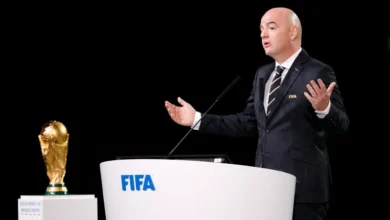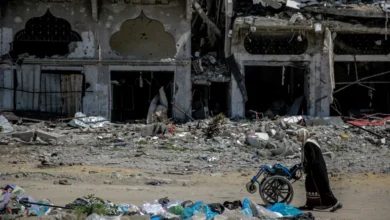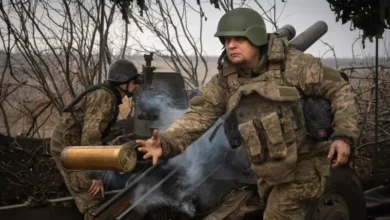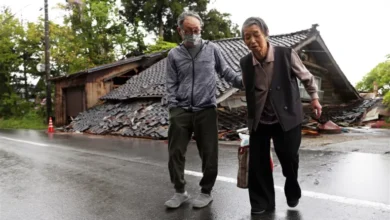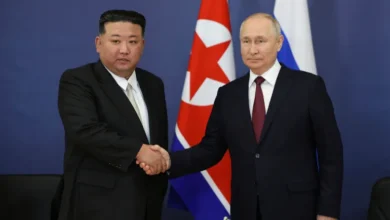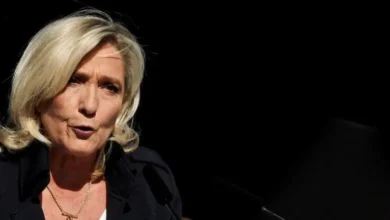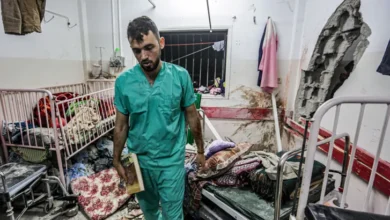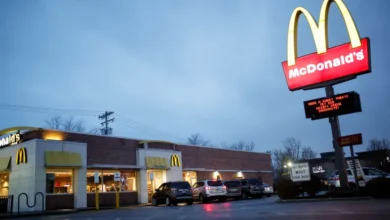After fleeing war, homelessness threatens UK’s Ukrainian refugees
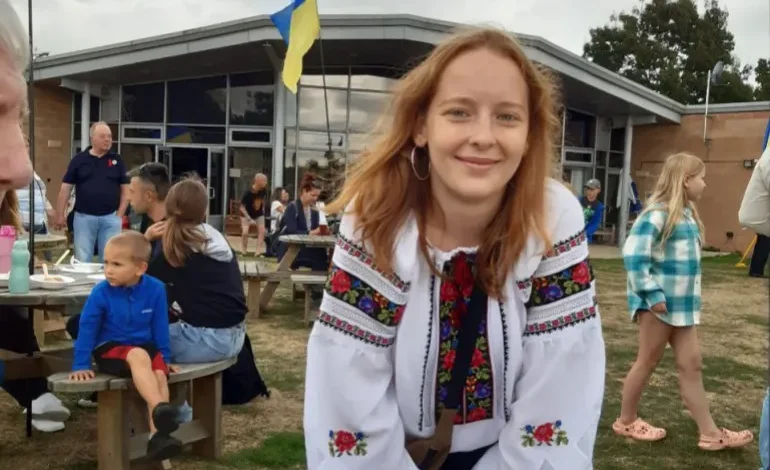
When the Russian war on Ukraine began last February, like many others, 18-year-old Anna Merchuk and her mother had no choice but to leave their home.
They fled their western city of Styri and arrived in Poland weeks later.
The Merchuks were preparing to go to Canada. But after a chance meeting with a British volunteer who was helping Ukrainian refugees obtain UK visas, they changed course and a few weeks later, drove to England with their new sponsor, Derek Edwards.
The United Kingdom is one of Ukraine’s strongest allies, and under the government’s Homes for Ukraine scheme, Anna and her mother settled in his house in Milton Keynes, about 80km (51 miles) northwest of London.
Together with Edwards, who is an entrepreneur, Anna co-founded a charity, Nadiya, which means hope in Ukrainian.
“So we decided to found this charity which focuses on getting visas for Ukrainian refugees and helping them come to England.”
Fluent in English, Anna’s responsibility as a translator involved answering questions from refugees and sponsors alike, and matching them up.
And while Nadiya is working on an app to gather data and connect refugees with host families automatically, Anna enjoys the manual effort as it creates a bond between the two sides.
“It gives me so much satisfaction when I see a Ukrainian family arrive in England, find a job, find schools for their children, sign up for English courses and assimilate to British society,” the aspiring politician said.
Anna estimates that Nadiya has helped about 500 refugees so far, but the focus is now on finding more permanent housing solutions after the sponsorship period – which typically lasts for six months – ends.
Homelessness amid high cost of living
According to the United Nations, more than six million people have fled Ukraine, in the largest refugee crisis in Europe since World War II. A further six million are internally displaced.
Like other European countries which introduced measures to welcome Ukrainian refugees, the British government rolled out three visa-based programmes: Homes for Ukraine, Family Scheme, and Extension Scheme.
The schemes allow refugees to stay in the country for up to three years and have access to schools, healthcare, social welfare benefits, and the right to work.
“Homes for Ukraine has seen 112,000 Ukrainians welcomed to the UK, thanks to the generosity of sponsors,” a British government spokesperson told Al Jazeera. “All Ukrainian arrivals can work or study and access benefits from day one and we have increased ‘thank you’ payments for sponsors to 500 pounds [$600] a month once a guest has been here for a year.”
But while praised for their achievements in welcoming refugees fleeing Russia’s war in Ukraine, a worrying trend is now emerging, a year after the invasion began: an increase in homelessness.
The UK’s cost-of-living crisis, coupled with the lack of affordable housing, has gravely affected the ability of refugees to move on from sponsorship into their own homes.
This has been compounded by a lack of credit history in the country, not speaking English fluently, and difficulties in finding a job.
“The design and implementation of funding available has left some refugees outside of the scope of support – putting living arrangements in jeopardy and leaving them at risk of homelessness,” the national charity for the homeless, Crisis, said.
According to the Department for Levelling Up, Housing and Communities, 4,295 Ukrainian households have received homelessness support from local councils since arriving in the country – a sixfold increase since June 2022. The number is thought to be much higher as only 72 percent of local English authorities were surveyed.
Initially, there was an enthusiastic response from British hosts at the beginning of the war to open up their homes to Ukrainian refugees, with at least 200,000 households signing up in the first few weeks of the government announcing the schemes.
However, despite more than 140,000 people being hosted by British families under the Ukraine Sponsorship Scheme, many hosts are now reluctant to extend six-month stays as inflation soars.
“We’ve provided councils with extensive funding including an additional 150 million pounds [$180m] to support Ukrainian guests to move into their own homes, as well as 500 million pounds [$600m] to acquire housing for those fleeing conflict,” the government spokesperson said.
But gaps in supporting Ukrainian refugees prompted a cross-party coalition of more than 70 MPs to sign an open letter last Monday calling on the British government to act immediately.
